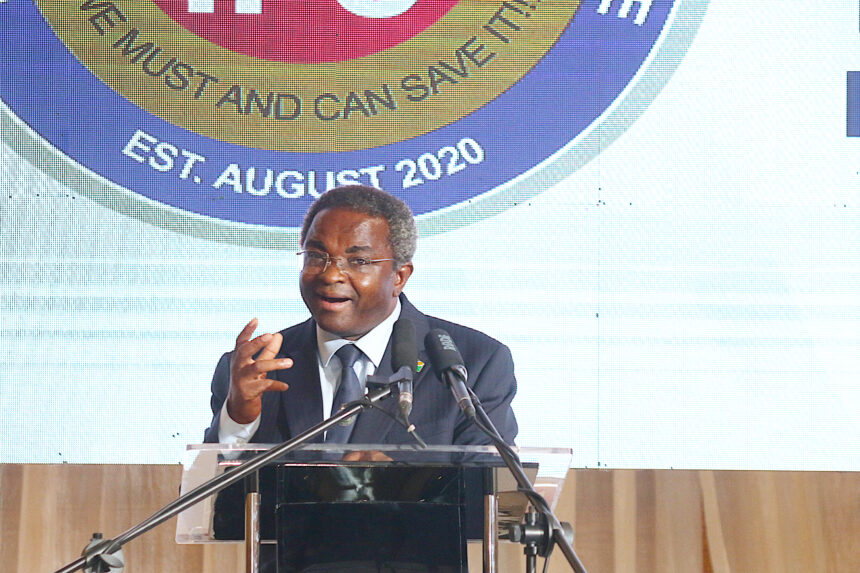Lahja Nashuuta
The Supreme Court will deliver the long-awaited ruling on the validity of Namibia’s 2024 Presidential election today.
The court will pronounce judgement on two cases submitted by the Independent Patriots for Change (IPC) on 23 December 2024. The IPC seeks to have the Presidential election declared invalid, overturning the victory of the Swapo Party’s candidate Netumbo Nandi-Ndaitwah, and calling for a new election.
The second case requests the Electoral Court to nullify the National Assembly election results, where Swapo also emerged victorious.
Additionally, the IPC is challenging the extension of voting by two days in certain regions, arguing that it violated Namibia’s Constitution and Electoral Act. In the court application, IPC president Panduleni Itula asserts that no authority had the power to extend the voting period. The IPC further claims that technical errors on 27 November led to voter suppression, preventing many from casting their ballots.
Last week, the Landless People’s Movement (LPM) became a co-applicant with the IPC in their fight to have the results of the November 2024 National Assembly elections set aside.
Legal brains
Legal experts and political commentators have weighed in on the case.
While opinions on the outcome are divided, legal expert Natjirikasorua Tjirera said no parties are alleging election-rigging or major irregularities.
“Some argued last year that the elections were rigged, and that narrative persisted among certain supporters. However, the Supreme Court is not tasked with determining whether the elections were rigged or irregular. Let that sink in as we await the outcome,” he emphasised.
Tjirera said the Supreme Court must determine whether the proclamation extending the voting period was lawful. “Advocate Raymond Heathcote SC argues that it was lawful, while Advocate Anton Katz SC and counsel for the LPM contend that it was not. This case concerns the extension of voting, not the original proclamation that set the voting date.”
He further asserted that if the court finds the extension unconstitutional, it may set aside all votes cast during the extended period. The Electoral Commission of Namibia (ECN) claims that votes from 27 November can be separated from those cast on 29 and 30 November.
If undisputed, this could lead to distinguishing between “lawful elections” under Proclamation 28 (held on 27 November), and “unlawful elections” under Proclamation 34 (held on 29 and 30 November).
Twin proceedings
Admitted legal practitioner Yarukeekuro Ndorokaze expressed concern over the parallel proceedings of the two cases.
“The drafters of the Electoral Act must be questioning why separate routes were created for Presidential and National Assembly election challenges. If the facts, urgency and significance are almost identical, why the divergence?” he asked.
Ndorokaze highlighted that the Supreme Court exclusively handles the Presidential election challenge, while the National Assembly election challenge must first go through the Electoral Court before reaching the Supreme Court on appeal.
“For the first time in history, both courts are running parallel proceedings, based on the same facts. Their findings could either align or conflict, creating legal uncertainty,” he warned.
“Why separate the routes for these interdependent processes? Even if the presidential election is overturned and a new president is sworn in, they cannot appoint a vice president or Cabinet without a constituted National Assembly.”
Potential implications
Legal Assistance Centre (LAC) director Toni Hancox does not believe the IPC will succeed.
“Not because their case lacks merit, but because the law only allows courts to overturn an election if the irregularities were severe enough to alter the result. Even if the last two days of voting were excluded, I believe the president-elect would still have won,” she stated.
She added, however, that if the Supreme Court overturns the election, the High Court must consider its decision when ruling on the National Assembly elections.
Political scientist Rui Tyitende warned that the ruling could backfire on the opposition.
“The IPC argues not that the elections were irregular, but that the extension was illegal. If the court rules in their favour, votes from 29 and 30 November will be nullified.
However, the ECN has stated that excluding these results would actually give Swapo an additional seat,” he pointed out.
Tyitende also argued that the case could expose the ECN’s shortcomings.
“If the Supreme Court rules that President Nangolo Mbumba’s decision was unconstitutional, it questions the credibility of the ECN as an electoral management body. I have publicly stated that the ECN commissioners should resign. This was the worst election since independence.
They had five years to prepare, and failed in a single day. Whether intentional or sheer incompetence, the court will decide.”
-lnashuuta@gmail.com



